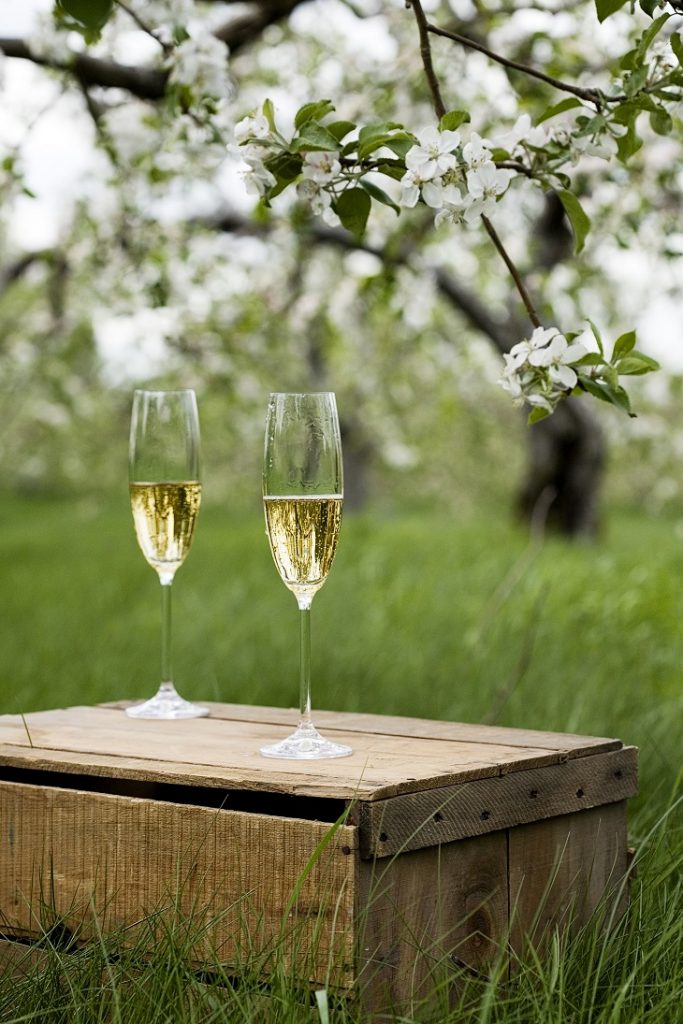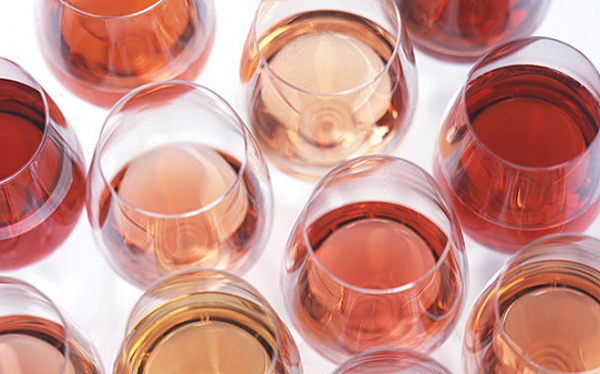Both champagne and sparkling wine have a refreshing, effervescent and similar taste, so why do they have different labels? There are a few reasons for their different names.

Source: bbc.com
Many people are hesitating if Champagne is a wine. Yes, it is. It is a wine named after the region it is produced and bottled in – Champagne, France. The only labels that are legally allowed to have the name “Champagne” are bottled within 100 miles of this region, which is located in the country’s northeastern corner, near Paris.
When it comes to what grapes make champagne, only a handful of grapes across the region are allowed to be used. These include Pinot Noir, Pinot Meunier, Chardonnay, Pinot Blanc, Pinot Gris, Petit Meslier, and Arbane. The process through which Champagne is made is known as the Champagne method (fermented in the bottle). It’s a two-step fermentation process where the grape juice is fermented into alcohol and then bottled to trap CO2 gas which forms the “bubbles”. From how the grapes are grown to how they’re harvested and processed, there are rigorous standards that characterize Champagne.
Sparkling wines come from anywhere in the world and are generally made with Chardonnay and Pinot Noir grapes. There are several methods for making sparkling wine, including the tank method, carbonation method and the traditional Champagne method. Yes, sparkling wines can also be made in the Champagne method, but they cannot officially be called Champagne because they are not produced in the Champagne region. The taste of the wine will vary depending on how it is produced. The Charmat method is used to accentuate fresh and fruit notes, while the Champagne method develops the nutty and toasty qualities of wine.

Source: thedrinksbusiness.com
When purchasing Champagne or sparkling wines, you’ll come across the term ‘organic’ on many labels. Organic champagne and sparkling wines are produced with organically grown grapes and an entirely different set of practices are implemented to maintain these wines. Non-organic wines, on the other hand, can use chemicals such as fungicides and herbicides in vineyards. So, if you are looking to drink more a sustainable wine, organic sparkling wine and organic champagne are your safest choice. Let’s take a better look at what actually distinguishes organic from non-organic wines.
- Sustainability – Organic farming doesn’t involve the use of pesticides and other chemicals. Non-organic farming generally does.
- Stability – The major difference between organic and non-organic wine is the presence of sulphite. Some winemakers add sulphur dioxide to wines to prevent bacterial contamination, mould, etc. Organic varieties also use GMO yeasts and sulphur to a minimum of 1050 mg/L to stabilize the wine for cellaring.
- Dietary Concerns – Did you know that about 8% of the world’s population is allergic to wine? Organic wines without sulphites are a viable option for these people.
- Cost – The cost of making organic wines is about 20% higher and the prices are around 15% higher than those of non-organic wines.
- Flavour – A survey has shown that people prefer organic wines over non-organic wines because the grapes grown without chemical fertilizers reveal more terroir and taste.
These are just some of the factors that explain why organic still and sparkling wine are becoming more and more popular every year. Here are some other reasons why you should consider drinking them more often.

Source: pinterest.com
Less Added Sugar
Besides being free from harmful chemical pesticides, fertilizers and herbicides and containing fewer sulphites, organic wines also contain less added sugar. One of the biggest disadvantages of wine bought in bulk at supermarkets is its added sugar content. The sweetness of wine can come from sugars, both naturally occurring and artificially added. The amount of sugar in the wine, whether it’s natural or added, will determine its final alcohol content. Winemakers tend to add sugar during the winemaking process to achieve their desired alcohol level but some also do it to hide certain imperfections in taste which result from using poor quality grapes. The fact that organic wines don’t contain added sugars is a major health benefit for everyone, especially for those looking to shed some kilos.
Hangovers Aren’t That Bad
The lack of sulphites and artificial chemicals in organic wines lessen the effects of potential headaches. This means you will be able to enjoy a couple of glasses from your sparkling wine and still be highly functional the next day. Still, it’s important to keep yourself hydrated while relishing the taste of different organic wines and avoid consuming more than the recommended dose.
Do you drink champagne cold? A bottle of champagne or sparkling wine should be chilled (but never in the freezer) before opening. The ideal serving temperature is between 6 to 9 degrees Celsius. And when it comes to how to open champagne or sparkling wine, there is a more civilized way than sending a cork shooting over people’s heads and showering those around you. And the only tools you will need for this are your hands. Take a look at how it’s done.




















